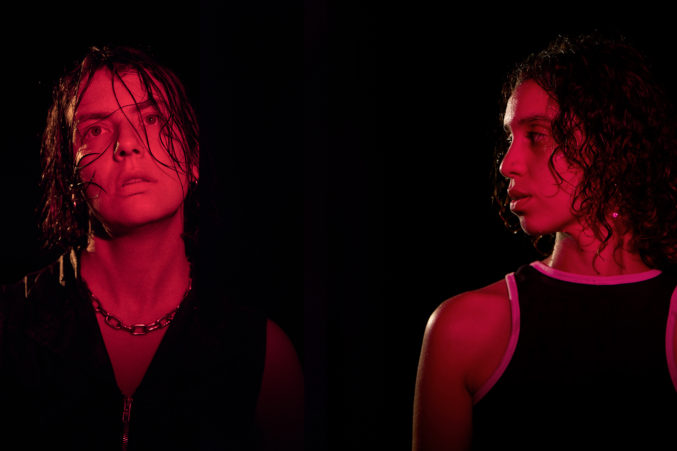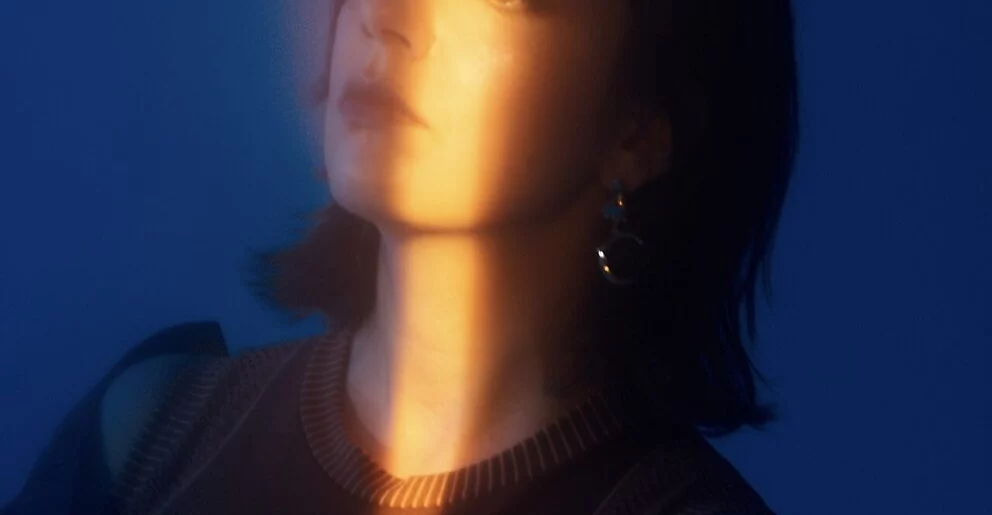Biography
Sara Dziri creates a unique space in the current music landscape. Her open-minded approach to making, collecting and playing music attracts the attention of occasional fans and demanding connoisseurs, both at large summer festivals and in small local clubs.
With her broad artistic vision and specific convictions, Sara Dziri tells an unusual story to the sounds of electro, acid, trance, disco, dark wave and jazz. She doesn’t tell this story alone. For the release of her debut album Close To Home by Optimo Music, she developed a live act together with classical ney soloist Valentina Bellanova. She composed a performance soundtrack for choreographer Sidi Larbi Cherkaoui. In the heart of the Brussels underground, she co-founded intersectional platform Not Your Techno, to promote female queer POC artists inside and outside the club scene.
By building these bridges between styles, venues and audiences, Sara Dziri positions herself as a versatile, all-round electronic artist. With that, she increasingly fits into a line of pioneers such as Nicolas Jaar, Marie Davidson, Nils Frahm or Floating Points. Her sets for Boiler Room, Institut du Monde Arabe and Nuits Sonores had cemented her name in the higher DJ regions long ago. Today, she is at home as a resident in Fuse and at Kiosk and Tsugi radio. Soon, the Palestinian radio Alhara will be added, and a collaboration with Bozar in Brussels.
In residentie Black Hole
01.12.2024 – 01.12.2024

Black Hole is a music and dance performance by DJ and sound artist Sara Dziri, who, together with dancer-choreographer Yasmina Tayoub, explores the intersections of rave culture and North-African trance traditions. Drawing from Sara’s research on trance practices in Egypt and Tunisia, the performance invites the audience into an imaginary rave space between dark escapism and otherworldly bliss.
During a work visit to Cairo (EG), Sara got inspired by the zār, an ancient healing trance tradition centered around women who do not fit into the conventional mold and find community with each other. A zār is led by women who, through singing, dancing, and music, search for the origin of someone’s struggle. Under the guidance of repetitive music, they seek healing together. She later went on a second work visit, this time in Tunis (TU), to learn more about other local trance practices, such as stambeli and isawaya.
“Zar cults buffer the individual caught in difficult structural conditions by creating a community with a shared experience of otherhood, particularly for the most vulnerable identities, those related to gender and sexuality. Members of a zar community buffer each other’s pains and misfortunes through friendships, mutual sympathy, communal dance, entertainment, and conversations outside the immediate kin group.” – Hager El Hadid in Zar — Spirit, Possession, Music, and Healing Rituals in Egypt.
Sara saw strong ressemblances with rave culture: community, healing, and connection through dance and music, far from the eyes of societal and political condemnation. With Black Hole she wants to highlight rave culture and trance traditions as spaces of resistance and connection.

